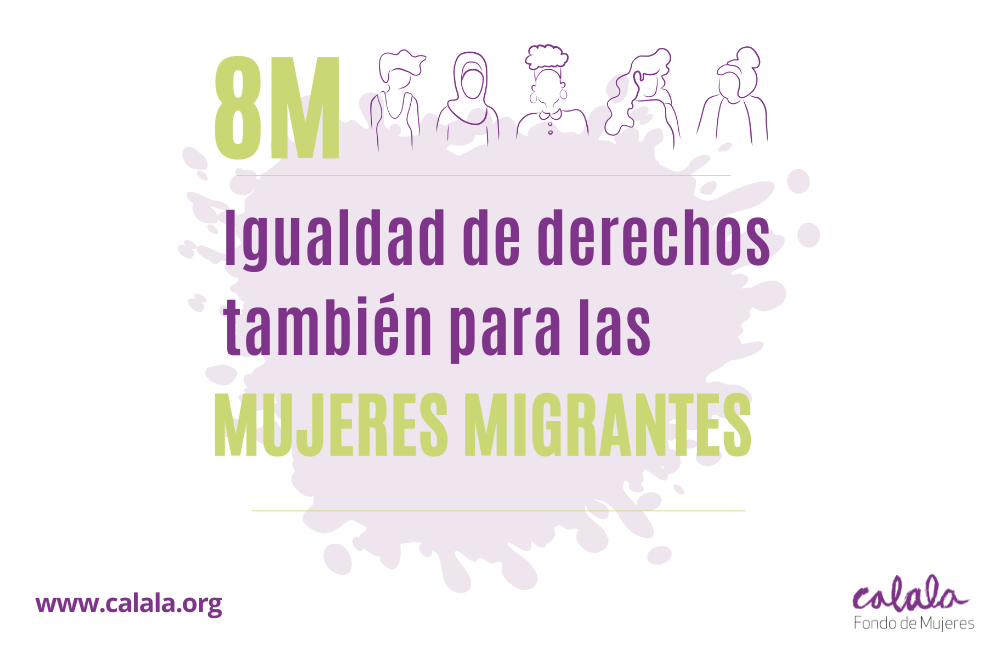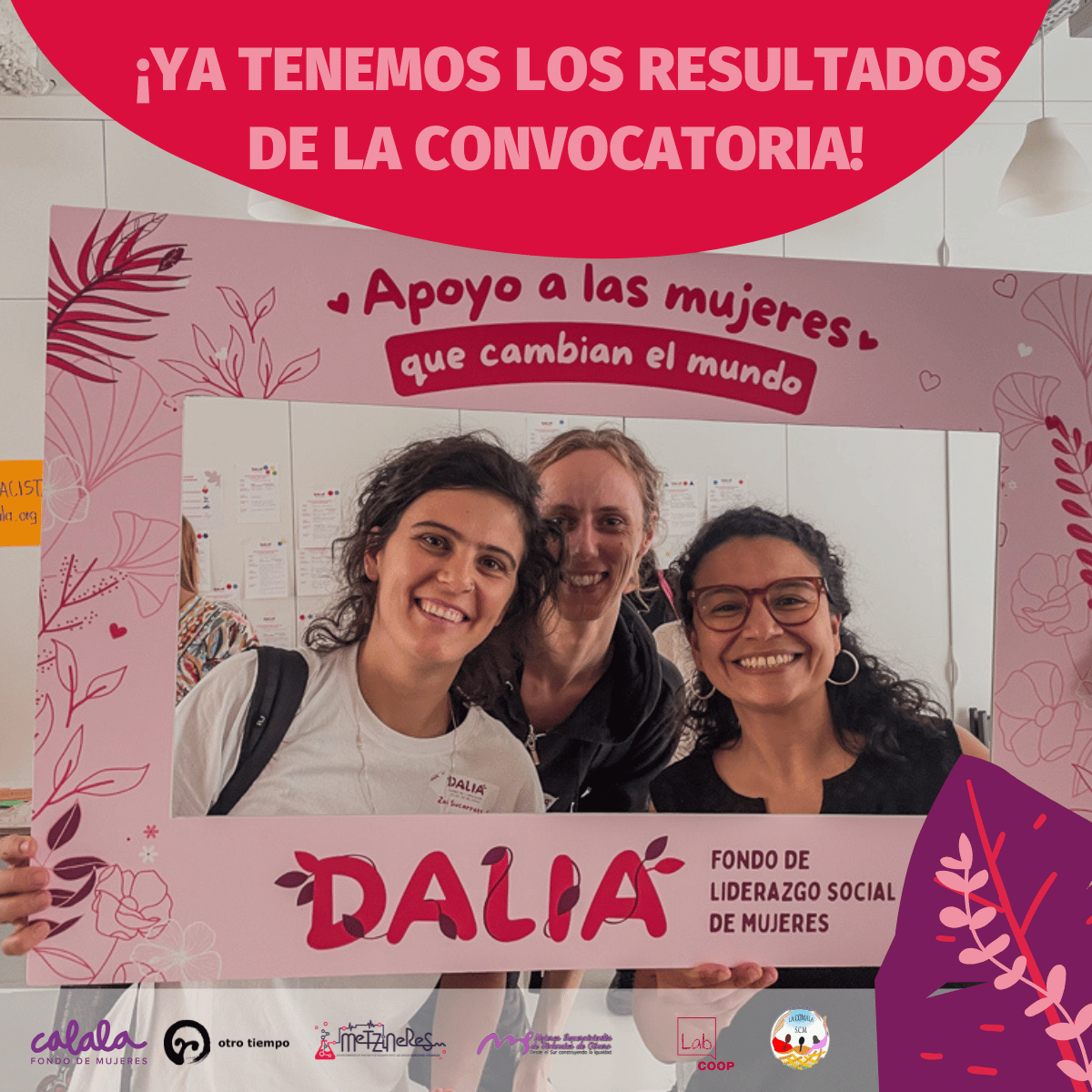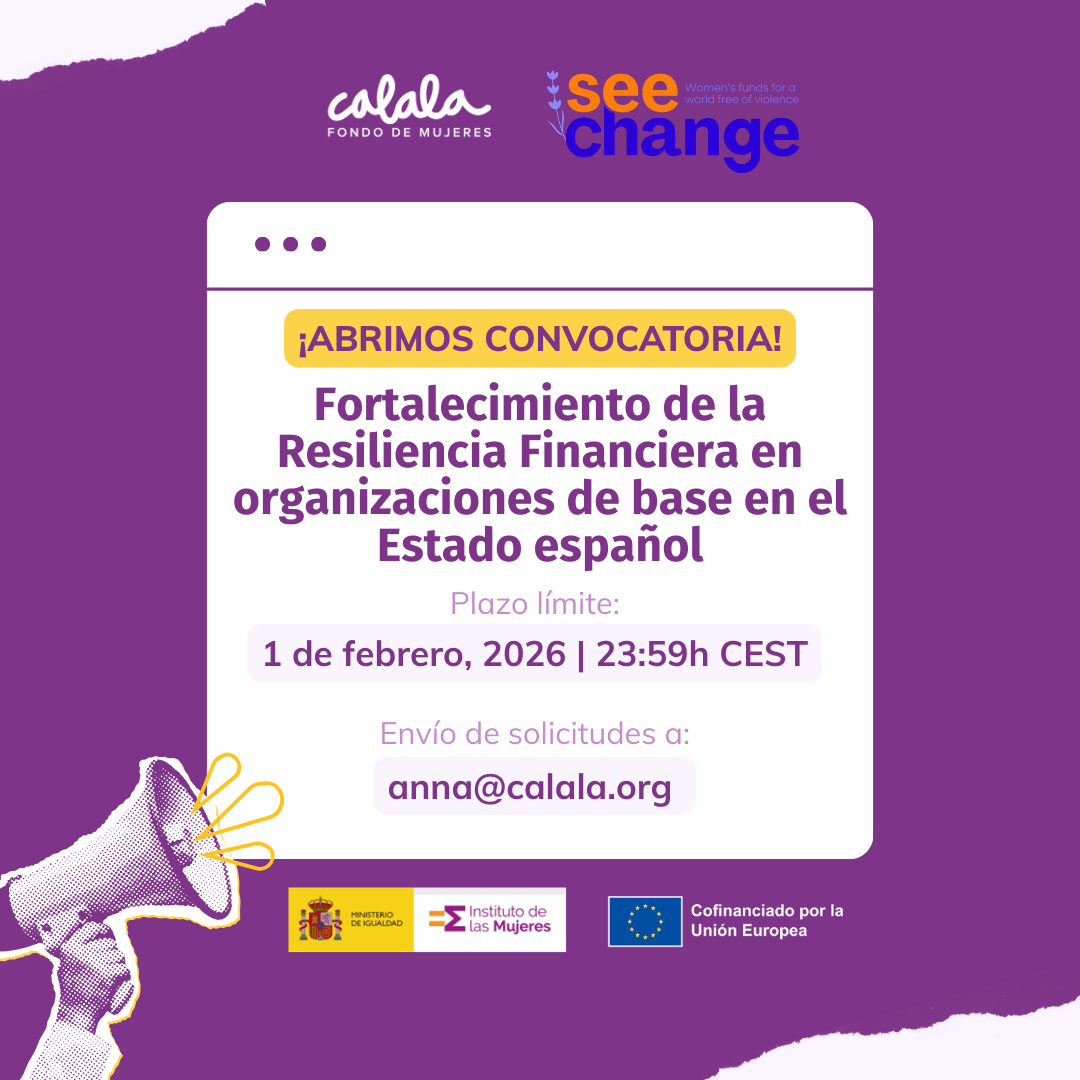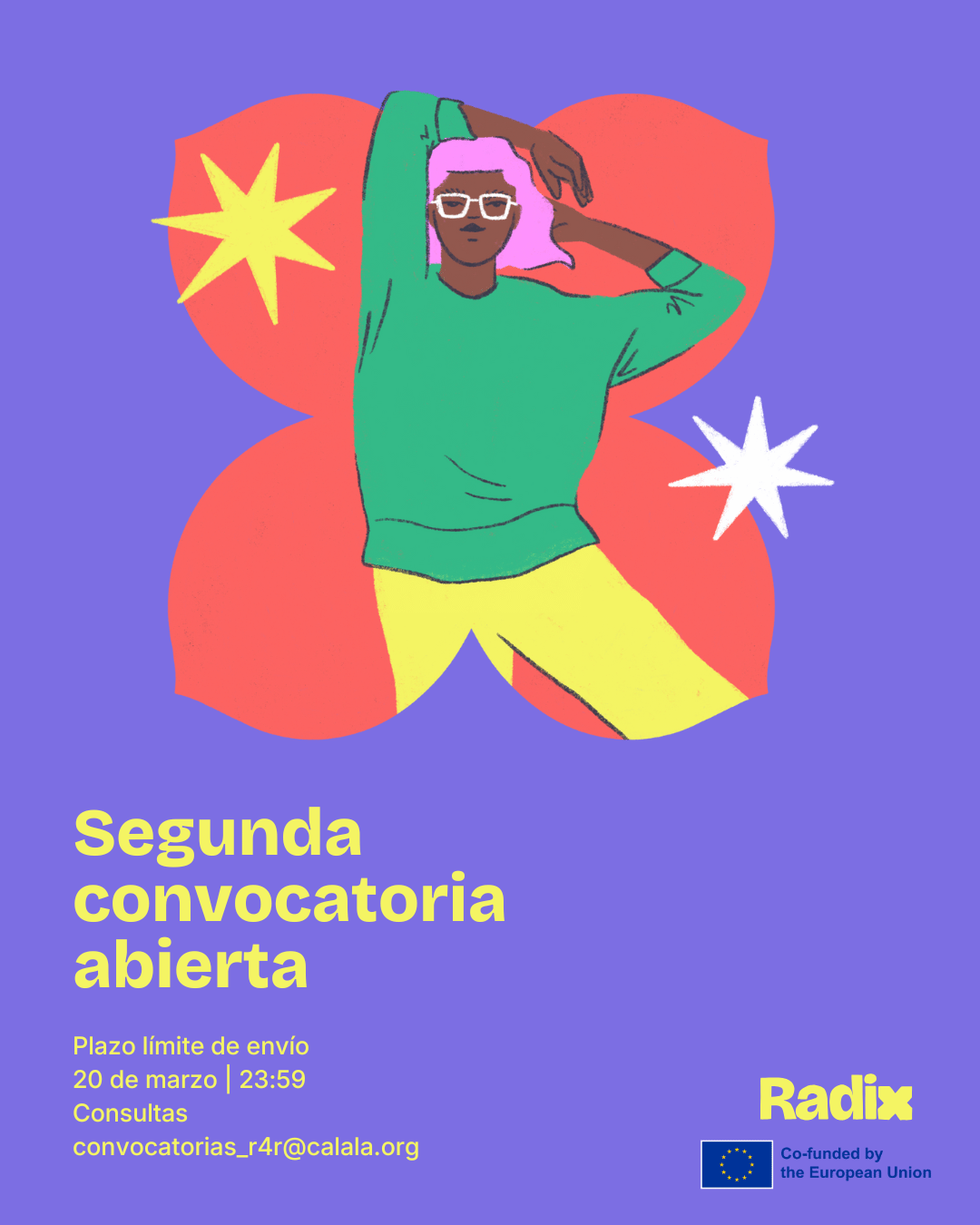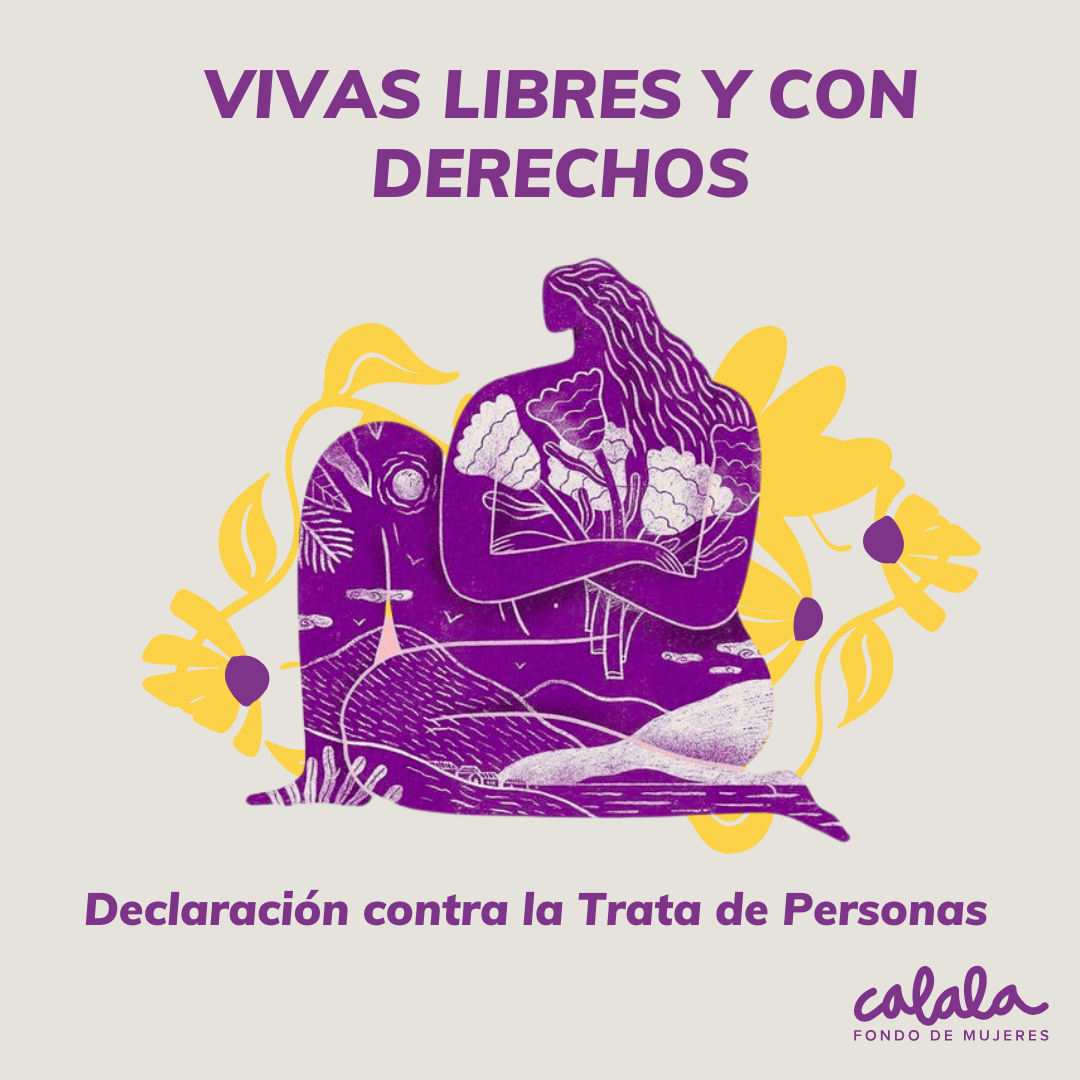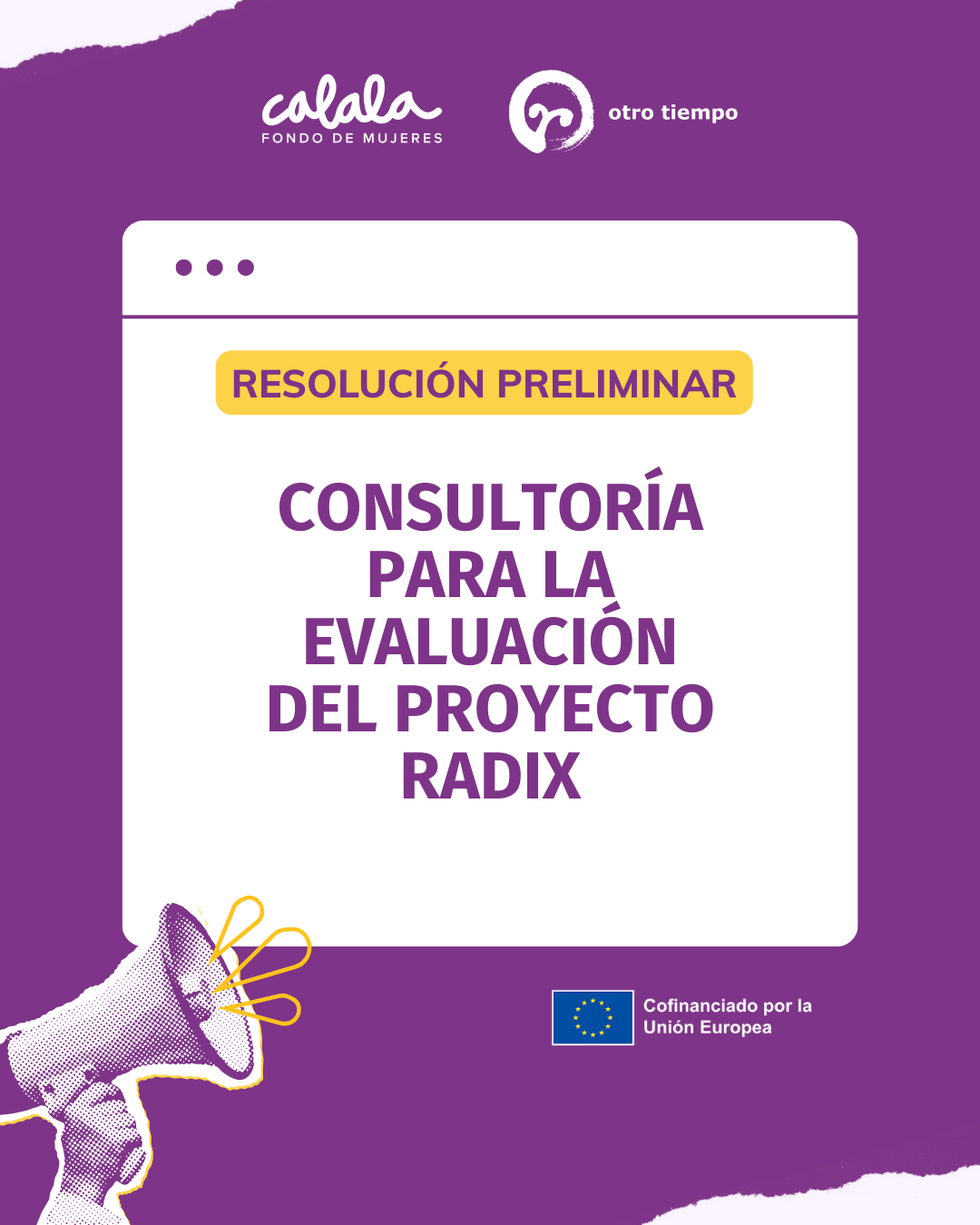At Calala we offer funds migrant women in Spain who organise themselves in associations or collectives in favour of their own rights, freedom and dignity as well as that of other women and their communities. This 8M you can donate for migrant women to also have equal rights:
Dight to a life free from gender-based violence
There are many data that alert us to the vulnerability of migrant women in Spain to male violence. Among them, that one out of every three women murdered is a foreigner. Foreign women are 6 times more likely to be murdered for this reason than Spanish women, according to the study. Migrant women victims of gender-based violence in Spain, by the Latin American and Caribbean Women's Network and AIETI, which you can read at this link.
Right to a life free of racism
15% of women living in Spain are migrants. The law on foreigners hinders their access to a regular migratory status, and therefore to basic rights. They also find it difficult to validate their studies or find jobs in line with their careers. The pandemic has only aggravated this situation. In their daily lives, many are confronted with racist attitudes and discrimination or hate crimes and hate speech, which have increased in recent years.

Right to decent working conditions
Many migrant women are forced to work informally as domestic and care workers, without the slightest protection. According to the Women's Institute, 86.4% of domestic work is done by women, and at least 50% are foreigners. Moreover, Spain has not ratified ILO Convention 189, which guarantees that domestic and care work enjoys the same Social Security guarantees as other workers. They currently have no right to unemployment, no contributions, and no occupational risk insurance.

A reflection on the problems faced by migrant women
By Bertha Massiel Sánchez - President of the Patronage of Calala
For decades, millions of women in impoverished countries around the world have had to migrate to ensure minimum living conditions for their children, relatives and dependents in their countries of origin. This has been referred to by feminism as “global care chains”Women who migrate, work as carers for the elderly or children, allowing women from the global North to work outside the home, and leaving other women to care for their dependents in their home country.
Why do migrant women leave their countries?
There are many reasons and circumstances, but many of these migrations are a consequence of extractivist practices in their territories, the impact of climate change, conditions of extreme poverty, the scarcity of job opportunities, the lack of institutions and the absence of democracy and security in some countries.
This context affects all the inhabitants of oppressed places, but especially impoverished women who are often discriminated against or stereotyped because of their origin.
Many of the women human rights defenders who denounce these injustices are murdered, threatened and persecuted by different political and economic actors and many have to go into exile to survive. Contrary to what right-wing parties argue, there is no “call effect”, but often a process of expulsion of people from their territories.
Some issues faced by migrant women in Spain
Unfortunately, the violations of their human rights do not end with the journey. In the case of Spain, when they arrive here, they have to face precarious and often undignified working conditions, with no contract, subsistence wages, exhausting working hours and no labour rights. This is not only the case in domestic work, it is a pattern that is also repeated in other feminised and racialised jobs, such as fruit picking, cleaning or meat processing plants.
On top of that, racist discourses, the law on foreigners and many media outlets try to justify and legitimise these violations. It is a system in which people's lives are degraded according to their country of origin, ethnicity, economic situation and sexual and gender identity.
In the face of this situation of mistreatment of many migrant women, there are feminist anti-racist organisations in Spain that are committed to sustain life and weave strong networks of solidarity at state and international level.. Hundreds of women accompany others in their regularisation processes, take care of their children, and organise themselves to denounce violations of their human rights.
These collectives constitute a vital support network for the survival and accompaniment of women, The women's groups are often highlighting the failures of the system and the impact of the law on foreigners on migrants“ lives. Throughout the state, many migrant women's groups are trying to make the cry "migrant women's rights" a reality.“our lives matter too”.
What does Calala do for these migrant women's groups and collectives?
We contribute to the strengthening of women's and feminist groups, networks and organisations that organise themselves in Spain and in Central America, for defend human rights, justice and equality, The project has been a great success, bringing about real change in their lives and communities.
We financially support organisations and collectives that play a key role in advancing women's rights, who do not have access to the resources of traditional funders, through flexible funds that enable them to sustain themselves and carry out their important social work.
